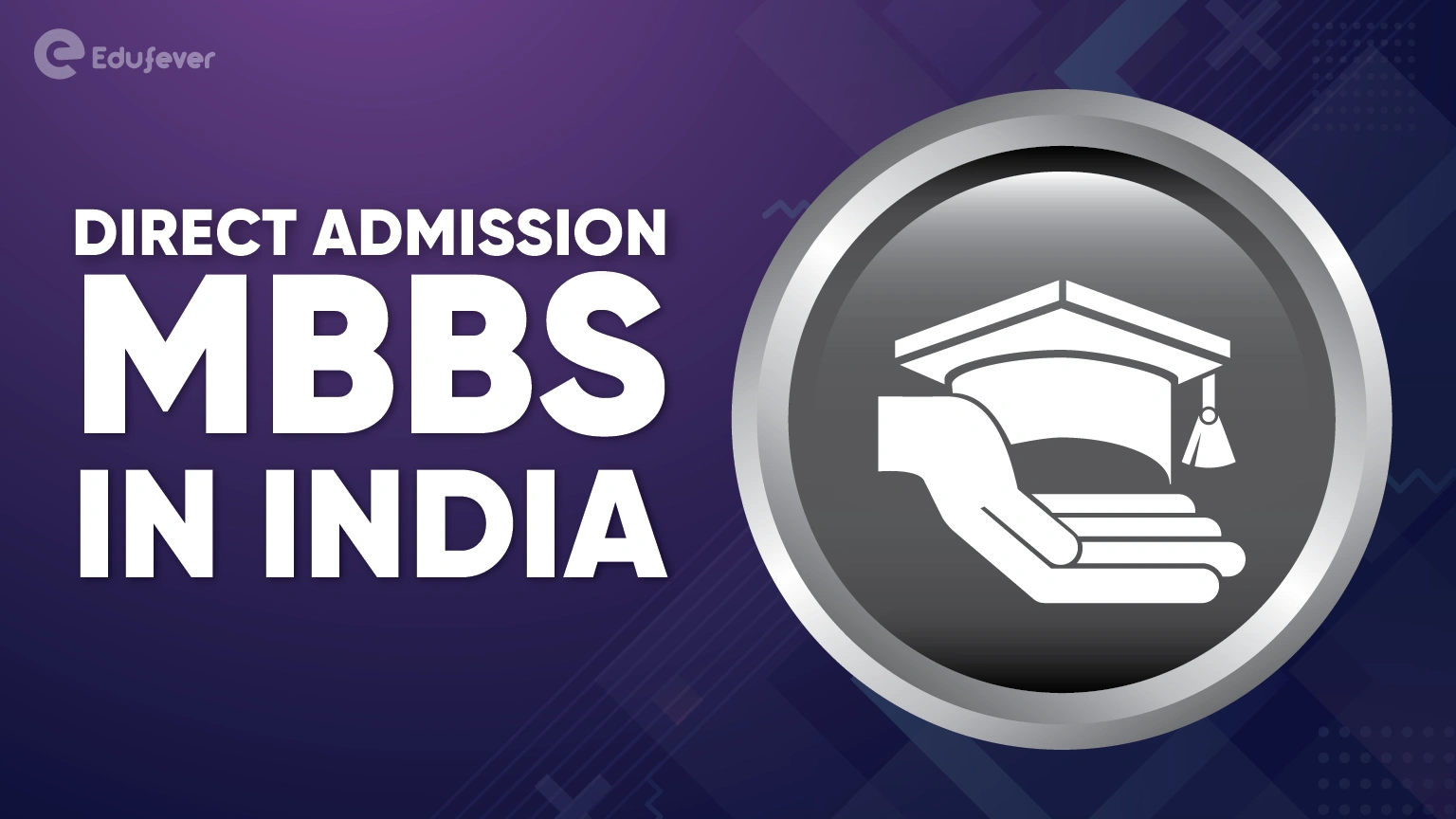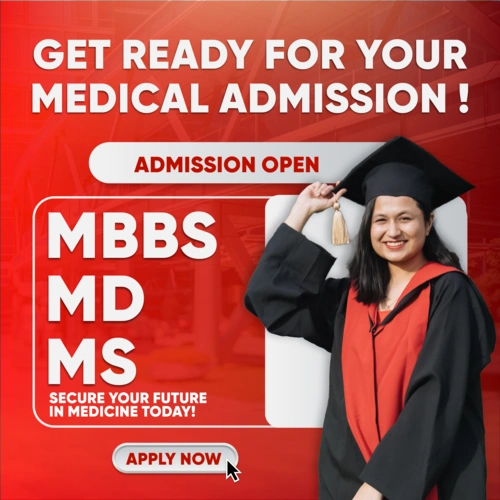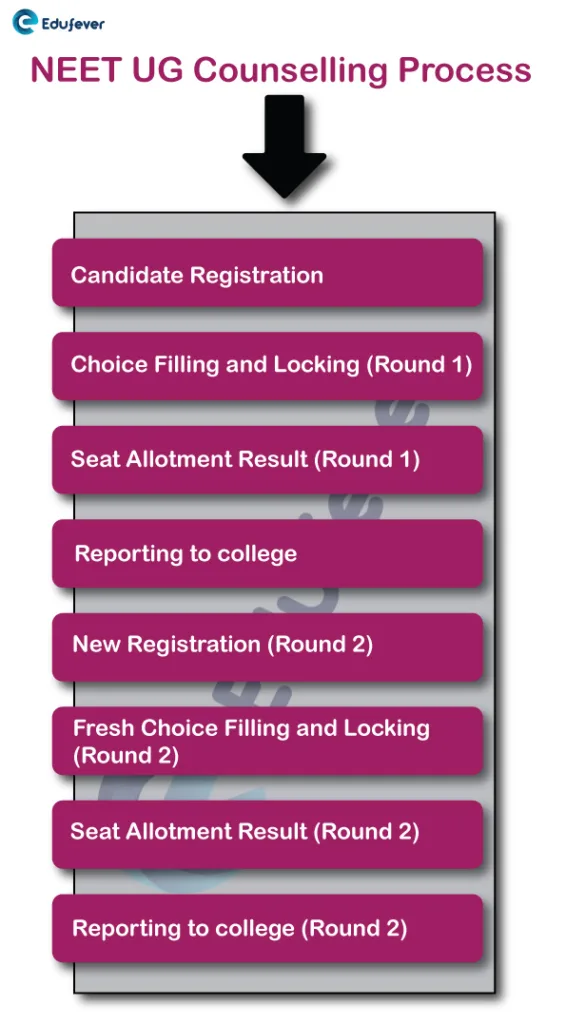Direct Admission in MBBS in India: Medical science is one of the most respected fields of study, as it involves the well-being of human beings. As a result, pursuing a career in medicine is a dream for many students. MBBS (Bachelor of Medicine and Bachelor of Surgery) is a popular undergraduate medical course in India, and obtaining a degree in this discipline is a coveted goal for many students. However, the competition to get admission to MBBS is very high in India due to the limited number of seats available. Direct admission to MBBS is a great option for students who are unable to secure a seat through the regular admission process. In this article, we will discuss the process of direct admission to MBBS in India.
Securing an MBBS seat is a highly competitive affair as more than 18 lakh candidates compete to get a seat in a renowned medical college. Though candidates can’t seek direct admission to MBBS, however, some students can opt for direct admission through the management and institutional quota. Through this article, readers can learn about direct admission to MBBS in India through the management and institutional quota, its advantages and disadvantages and more.
[Page Index]
MBBS Quick Facts
The following is a summary of the MBBS course. Let’s take a look.
| Particulars | Description |
|---|---|
| MBBS Full Form | Bachelor of Medicine and Bachelor of Surgery |
| MBBS Course Duration | 5.5 Years |
| Eligibility | 10+2 with 50% marks |
| Admission Procedure | Counselling by MCC/state quota |
| Average Fees | Rs. 71,000 to Rs.2,100,000 |
| Average Salary | INR 3.6 LPA |
| Career Opportunities | Physician, Doctor, Endocrinologist, Pathologist, Neurologist, Cardiologist, Gynaecologist |
| Recruiting Companies | Fortis Health care, Medanta, Global Hospitals, Dr Lal Path Labs |
What is Direct Admission to MBBS in India?
Direct admission in MBBS through the management and institutional quota is a process where students can get admission into a medical college without appearing for the entrance exam. Colleges reserve a certain percentage of seats under the management and institutional quota, and students can apply for admission through this quota. The admission is granted based on the student’s performance in Class 12 or equivalent exams and their performance in the management quota entrance exam conducted by the respective colleges.
Direct Admission in MBBS in India: Type
Candidates wanting to pursue MBBS need to appear for NEET-UG after 10+2 and counselling conducted by MCC (Medical Council Committee). Candidates can get direct admission to MBBS through management quota and institutional quota.
Management Quota
means the seats are reserved for direct admission in MBBS, those who did not qualify for the basic eligibility criteria for getting a seat in the respective medical college in India.
Institutional Quota
are those seats that are under the control of the college as they are allowed to admit students from their side. The institution can take students through direct admission.
Advantages of Direct Admission to MBBS
- Increases Chances of Admission: Direct admission through the management and institutional quota increases the chances of admission as students are evaluated based on their academic performance in Class 12 or equivalent exams and their performance in the management quota entrance exam. If a student has a good academic record and performs well in the entrance exam, they have a higher chance of getting admission into a medical college.
- Reserved Seats: Colleges reserve a certain percentage of seats under the management and institutional quota for students who are not able to clear the NEET exam. These reserved seats provide an opportunity for students who may have missed out on admission due to their NEET scores.
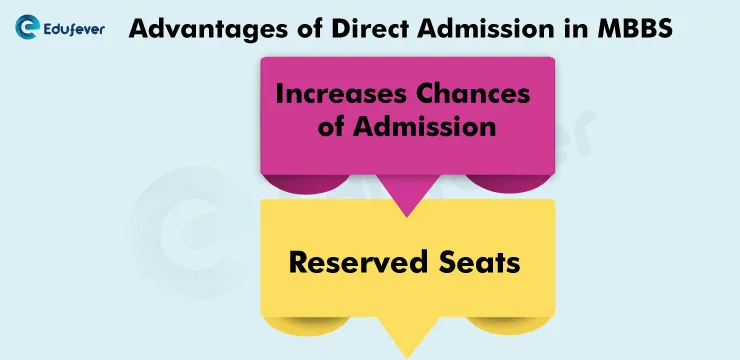
Disadvantages of Direct Admission in MBBS
- Expensive: Direct admission through the management and institutional quota is expensive as students have to pay a higher fee than those who clear the NEET exam. The fee for direct admission is generally higher as colleges charge a premium for granting admission through this quota.
- Limited Options: Not all medical colleges offer admission through the management and institutional quota. Students may have limited options to choose from, and they may have to settle for a college that may not be their first choice.
- Quality of Education: The quality of education in colleges offering direct admission through the management and institutional quota may not be up to the mark compared to colleges that grant admission based on NEET scores. Students must do proper research before applying to colleges that offer direct admission.
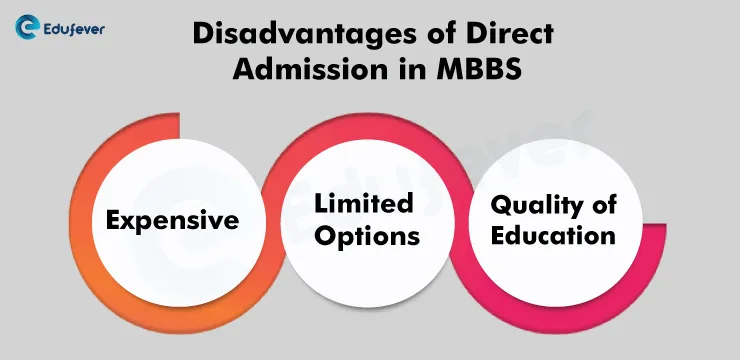
How to get direct admission to MBBS?
- The prerequisite for the aptitude test is the passed class 12 / upper secondary level / pre-college qualification test with natural science subjects such as physics, chemistry, and zoology/botany as well as English as the main subject.
- First of all, the candidates must show their nationality as an Indian, NRI, or OCI, Individuals of Indian Origin, or other Foreign Nationals.
- The simple requirement for MBBS admission and front examination in India is Class 12 with at least 50% marks.
- It is not possible to take direct admission in MBBS without NEET
Process of Direct Admission to MBBS in India
Direct admission to MBBS is available in some private medical colleges in India. The admission process usually starts after the results of the 12th board exams are declared. The following are the steps involved in the process of direct admission to MBBS:
Step 1: Research and Shortlisting of Colleges
The first step in the process of direct admission to MBBS is to research and shortlist colleges that offer direct admission. Students should check the reputation of the college, faculty, infrastructure, and fee structure before shortlisting the colleges.
Step 2: Fill out the Counselling Form
After shortlisting the colleges as per their expected NEEt Score, candidates have to participate in MCC NEET UG Counselling for 15% of seats and respected state for 85% state.
Step 3: Application and Documentation
Students have to submit their application along with the necessary documents such as mark sheets, identity proof, and address proof. The application form should be duly filled and signed.
Step 4: Fee Payment
Students have to pay the admission fee to confirm their admission. The fee for direct admission to MBBS is usually higher than the regular admission fee.
Step 5: Admission Confirmation
Once the fee is paid, the college will confirm the admission of the student to MBBS.
Management Quota Admission Procedure
- First medical aspirants have to qualify for the NEET-UG entrance exam.
- Wait for the NEET 2025 result, which is announced by NTA.
- After the declaration of the NTA NEET 2025 result, candidates have to register on the MCC website if they are interested in deemed universities.
- Register for counselling in the state where you prefer to join.
- In some cases, a few states will ask for security deposits ranging from Rs.1 lakh to Rs.2 lakh which will be refunded.
- Then you have to verify your documents. In some states, there is no procedure for document verification.
- College choice filling. You have to give the choice of the college you want to join.
- There will be two rounds of online counselling and if you weren’t allotted a seat, then you can attend the MOP-UP round.
- All the vacant seats will be filled through the MOP-UP round and stray vacancy round.
Management Quota Eligibility Criteria
The following are the eligibility criteria for management quota for admission to MBBS:
| Particulars | Description |
|---|---|
| Age Limit | The minimum age limit is 17 years. |
| Qualification | 10+2 in the science stream including Physics, Chemistry, Biology, and English. |
| Qualifying Marks | Candidates must score a minimum of 50% aggregate marks. |
Documents Required
The following are the documents required for the management quota:
- 12th marks card.
- 12th pass certificate.
- 10th marks card.
- Transfer Certificate.
- Conduct Certificate.
- Migration Certificate.
- NEET Scorecard.
- Community certificate, if applicable.
- Income certificate, if applicable.
- Aadhar Card and Number.
- Passport size photograph
NEET UG Counselling Process
Candidates applying for Medical/Dental Colleges in India must register for the AIQ NEET counselling. Counselling of NEET for All India Quota will be conducted in two rounds in online mode. The counselling will consist of these steps.
Top Deemed Private Medical Colleges in India
The following are the top deemed private medical colleges in India, to check the college’s seat, and fees structure click on the respective college link.
Read Also:

